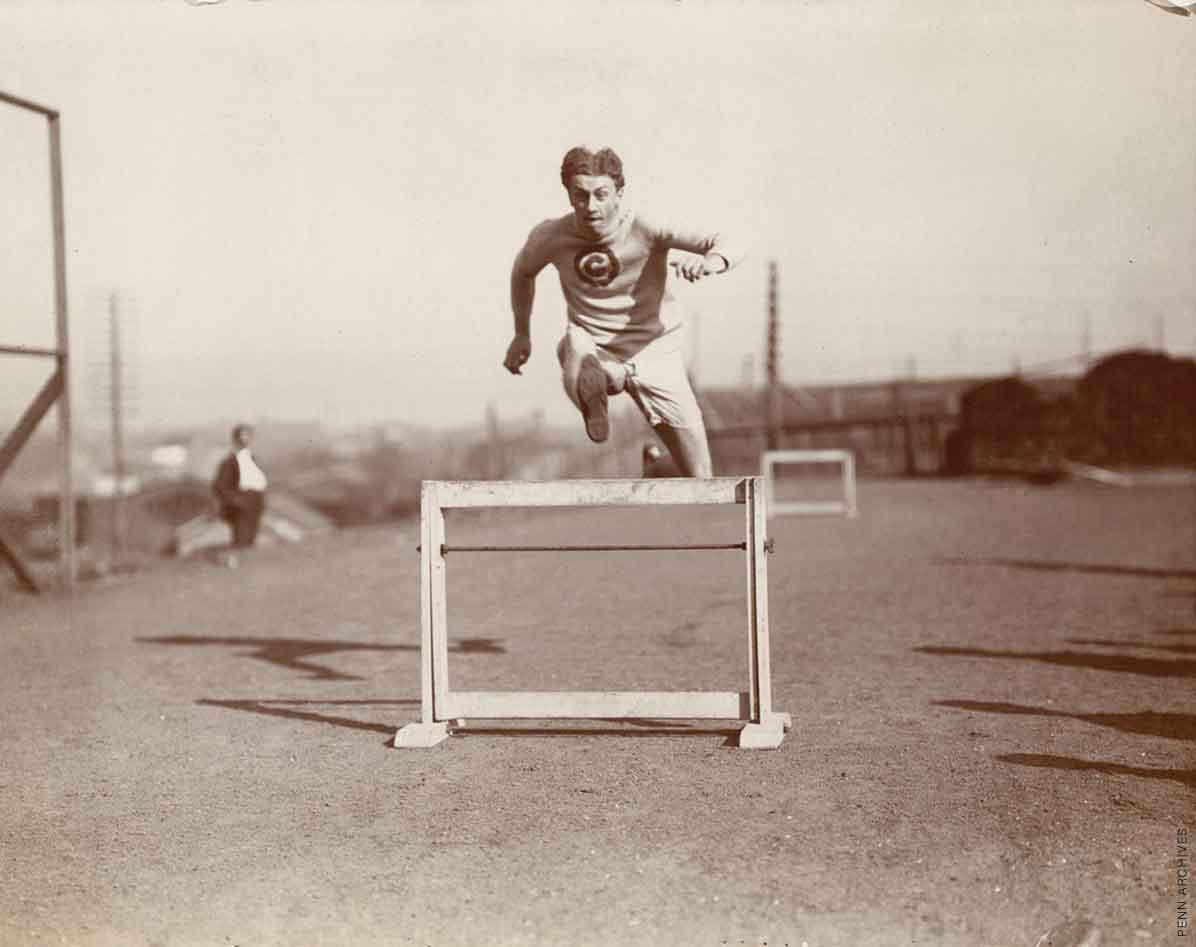
When the 2024 Summer Olympics are held in Paris this July and August, it’s unlikely that any athlete will be able to match what a Penn dental student did there more than a century ago.
At the 1900 Summer Olympics in Paris, Alvin Kraenzlein D1900 won a whopping four gold medals—in the 60-meter dash, the 110-meter hurdles, the 200-meter hurdles, and the long jump.
To this day, the four individual gold medals in a single Olympics remains a record for track and field. (The legendary Jesse Owens and Carl Lewis each captured four golds in 1936 and 1984, respectively—but, for both, one of the four came from being part of a relay team.)
Born in 1876 to German immigrants, Kraenzlein grew up in Milwaukee and attended the University of Wisconsin, before arriving at Penn in 1897 to run under famed track coach Mike Murphy. At Penn, he set multiple world records and led the Quakers to intercollegiate championships in 1898, 1899, and 1900. He’s also credited for developing, per Penn Archives, “a new form of gliding over the hurdles, clearing the hurdles with the lead leg extended, which became the standard technique for modern hurdlers.”
In 1900, Kraenzlein led a brigade of Penn track and field stars across the ocean to compete in the second modern Olympics. They returned from Paris with 21 total medals, including five apiece won by Walter Tewksbury D1899 and Irwin Knott Baxter L1901, to begin a long stretch of Olympic excellence for Penn students, alumni, coaches, and faculty members [“Penn in the Olympics, Jul|Aug 2012].
Although the Olympics have dramatically grown as a spectacle since the more subdued affair in 1900, which didn’t include any opening or closing ceremonies, Kraenzlein’s place in University and Olympic lore remains secure—in part because of the drama that came with one of his golds. As legend has it, he was allegedly punched in the face by Syracuse’s Myer Prinstein, who led in the high jump after the qualifying round but was prevented by Syracuse officials from competing in the finals because it was held on a Sunday, the day of rest. (Prinstein was Jewish, but Syracuse was then affiliated with the United Methodist Church.)
Kraenzlein went on to become a track coach at Mercersburg Academy and the University of Michigan and had begun a stint coaching the German Olympic team in 1913 but was advised to leave the country shortly before World War I broke out. He died of heart disease in Wilkes-Barre, Pennsylvania, at the age of 51. —DZ




